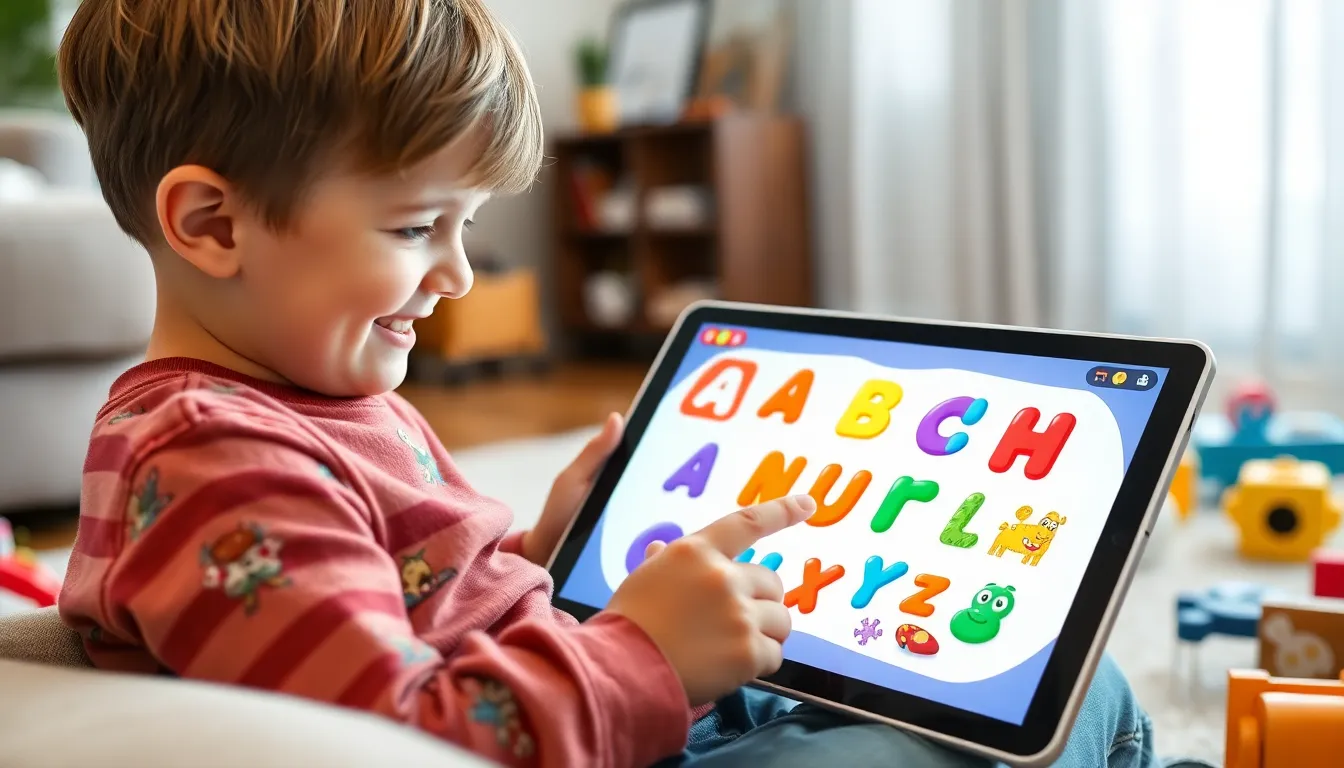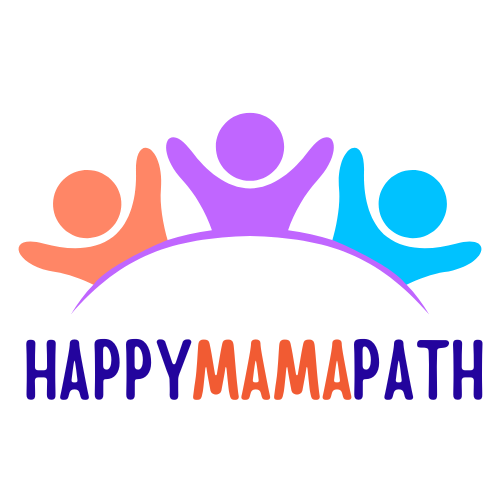In a world where toddlers can swipe before they can walk, alphabet learning apps have become the new playground for early education. These digital tools aren’t just flashy distractions; they’re designed to turn the daunting task of learning letters into a fun and engaging adventure. Who knew that mastering the ABCs could involve dancing letters and singing vowels?
Parents can breathe a sigh of relief knowing that these apps are more than just a way to keep little ones entertained. They offer interactive experiences that stimulate young minds and pave the way for future reading success. With so many options available, finding the perfect app can feel like searching for a needle in a haystack. But fear not! This guide will help navigate the alphabet jungle and uncover the best apps that make learning a blast.
Table of Contents
ToggleOverview Of Alphabet Learning Apps
Alphabet learning apps emerged as engaging tools for early education, transforming traditional learning into interactive experiences. These apps feature elements such as animated letters and songs designed to captivate children’s attention while they explore the alphabet.
Parents appreciate that these tools enhance learning without being mere distractions. Users report positive educational outcomes when children interact with these applications, as they combine fun activities with essential alphabet skills. Many apps employ games that encourage repetition, a key element in solidifying knowledge of letters and their sounds.
Specific features often found in these applications include touch-responsive letters, engaging visuals, and immersive sound effects. These elements come together to create a stimulating environment for learning. In addition to enhancing letter recognition, some apps introduce phonics and vocabulary through dynamic storytelling.
Selecting the right app can make a significant difference in a child’s learning journey. Parents can consider factors like age appropriateness, user interface simplicity, and educational content quality. Reviews from other users and educational experts also provide valuable insights, helping caregivers make informed choices.
Numerous apps available in app stores cater to different learning styles. These applications can be tailored to meet individual needs, ensuring personalized learning experiences. Young learners benefit from diverse approaches, whether through interactive games or guided lessons, making the learning process both effective and enjoyable.
Key Features To Look For

Finding the right alphabet learning app requires attention to specific features that enhance the educational experience. Consider the following aspects to ensure optimal engagement and effectiveness.
User Interface and Design
App design significantly impacts user enjoyment and learning. A clean, simple layout promotes ease of navigation for young learners. Bright colors and appealing visuals maintain interest while animated elements draw attention. Apps featuring intuitive touch controls allow children to interact effortlessly, reinforcing learning through hands-on engagement. Each letter may respond with fun sounds or animations, making the experience dynamic and enjoyable. Ultimately, effective user interface design caters to the developmental needs of children, fostering a positive learning atmosphere.
Educational Content and Engagement
High-quality educational content remains crucial for effective alphabet learning. Look for apps that incorporate phonics, vocabulary, and interactive storytelling. Engaging games blend fun with learning, which helps reinforce alphabet recognition. Repetition plays a vital role in solidifying knowledge; thus, suitable apps should encourage this process through varied activities. Research shows that apps integrating tracking features allow parents to monitor progress, enhancing the educational value. Prioritize apps that adapt to different learning styles, ensuring that every child can thrive in their alphabet journey.
Popular Alphabet Learning Apps
Numerous alphabet learning apps engage young learners while teaching essential skills. Here are three standout options.
App 1: Features and Benefits
ABCmouse offers a comprehensive curriculum for children aged 2-8. Interactive lessons incorporate phonics, vocabulary, and animated characters that keep kids interested. Users appreciate the adaptive learning path that adjusts to each child’s pace. Engaging games reinforce letter recognition, while progress tracking helps parents monitor achievement. Numerous activities across subjects contribute to a well-rounded educational experience.
App 2: Features and Benefits
Starfall focuses on phonics to develop strong reading foundations. This app invites children to explore letters through songs, stories, and engaging visuals. A vast array of resources ensures that various learning styles are supported. Children enjoy learning with interactive elements like animated characters and games designed to reinforce concepts. Parents recognize the value in the app’s extensive library of educational content.
App 3: Features and Benefits
Endless Alphabet captivates young children by introducing vocabulary through delightful animations. Unique characters interact with each letter, making learning entertaining. This app allows kids to explore words through playful definitions and illustrations. A focus on early literacy and phonics enriches the learning experience. Parents find the engaging format promotes enthusiasm for reading and enhances retention of new vocabulary.
Benefits Of Using Alphabet Learning Apps
Alphabet learning apps offer several advantages that significantly enhance early education.
Enhancing Literacy Skills
Alphabet learning apps improve literacy skills by providing interactive pathways for letter recognition. Engaging visuals and sounds reinforce the connection between letters and their corresponding sounds. These apps often incorporate phonics, allowing children to master not only the alphabet but also essential reading skills. Repeated exposure through fun activities helps learners retain information effectively. Research shows that children using these apps perform better in early reading assessments compared to peers who don’t. Gamified elements encourage practice, making the learning process enjoyable and reinforcing comprehension of language.
Encouraging Independent Learning
Alphabet learning apps foster independent learning by allowing children to explore at their own pace. Interactive features empower kids to make choices, enhancing their decision-making skills. They can revisit lessons or focus on challenging concepts without pressure, promoting self-directed study. Parents benefit from tracking tools within many apps, enabling them to observe their child’s progress. This visibility helps caregivers tailor support to individual learning needs. Apps create an environment where children feel confident and motivated, nurturing a lifelong love of learning.
Alphabet learning apps are revolutionizing early education by blending fun and learning seamlessly. By incorporating interactive features and engaging content, these apps not only capture children’s attention but also foster essential literacy skills. Parents can feel confident knowing that these tools provide valuable support for their child’s educational journey.
Choosing the right app can significantly impact a child’s learning experience. With the right guidance and understanding of key features, parents can find resources that cater to their child’s unique needs. As technology continues to evolve, these apps will remain an integral part of nurturing a love for learning in young minds.



